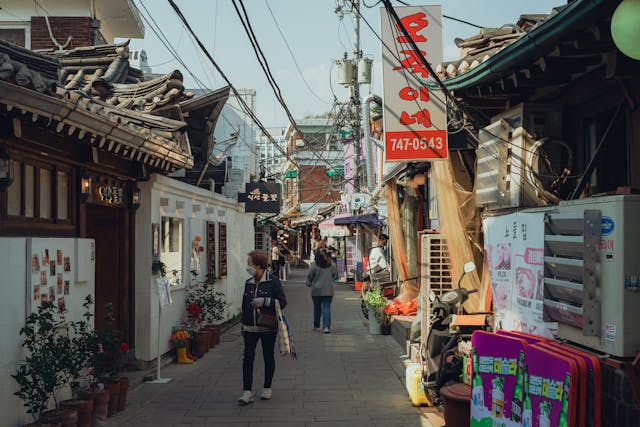Community-based tourism is a beautiful way to experience the soul of a destination by connecting with its people, traditions, and way of life. In India, villages hold the key to untold stories, ancient crafts, and sustainable living. For a Responsible Yatri, these villages not only offer immersive experiences but also empower local communities through tourism. Here’s a guide to some of the best villages in India that showcase the spirit of community-based tourism.
1. Dhordo Village, Gujarat
Located in the heart of the Rann of Kutch, Dhordo is a vibrant village famous for its white salt desert and rich Kutchi culture.
- What to Experience:
- Stay in traditional Bhungas (mud houses) decorated with intricate mirror work.
- Witness the Rann Utsav, a cultural festival featuring folk dances, music, and local crafts.
- Interact with artisans specializing in bandhani, leatherwork, and embroidery.
- Responsible Tip: Purchase handcrafted items directly from local artisans to support their livelihood. Avoid littering the pristine salt desert.
2. Mawlynnong, Meghalaya
Known as the Cleanest Village in Asia, Mawlynnong in the East Khasi Hills is an eco-tourism model that blends sustainability with natural beauty.
- What to Experience:
- Explore the village’s spotless streets, bamboo dustbins, and rainwater harvesting systems.
- Walk on the living root bridges, a marvel of natural engineering.
- Relish authentic Khasi cuisine made with organic ingredients.
- Responsible Tip: Respect local customs and avoid using plastic to maintain the village’s cleanliness.
3. Hodka Village, Gujarat
Situated near the Great Rann of Kutch, Hodka is another gem for those seeking an authentic rural experience.
- What to Experience:
- Stay in eco-friendly accommodations run by the local community.
- Learn traditional crafts like embroidery and leatherwork.
- Enjoy local folk music under the starlit sky.
- Responsible Tip: Participate in workshops and directly purchase handmade goods to support local artisans.
4. Khonoma, Nagaland
Dubbed as India’s First Green Village, Khonoma showcases the harmony between tradition and sustainability.
- What to Experience:
- Witness terraced farming and sustainable hunting practices.
- Explore the Khonoma Nature Conservation and Tragopan Sanctuary.
- Learn about Naga culture through homestays and community tours.
- Responsible Tip: Respect the village’s strict eco-tourism rules and contribute to conservation initiatives.
5. Pochampally, Telangana
Known as the Silk City of India, Pochampally is the birthplace of the iconic Ikat weaving.
- What to Experience:
- Visit the homes of weavers and learn the art of Ikat dyeing and weaving.
- Explore the lush countryside and enjoy traditional Telangana cuisine.
- Visit the Pochampally Handloom Park for a deeper understanding of the craft.
- Responsible Tip: Purchase handwoven fabrics and avoid cheap machine-made imitations to support the artisans.
6. Chendamangalam, Kerala
A village steeped in history and culture, Chendamangalam is known for its traditional handloom weaving and synagogue.
- What to Experience:
- Watch weavers at work and buy authentic handloom products.
- Visit the Chendamangalam Synagogue and learn about Kerala’s Jewish heritage.
- Take a serene walk through the village’s paddy fields and coconut groves.
- Responsible Tip: Opt for eco-friendly souvenirs and avoid exploiting natural resources.
7. Bishnoi Villages, Rajasthan
The Bishnoi community, known for their conservation ethics, offers visitors a glimpse into their eco-friendly way of life.
- What to Experience:
- Learn about Bishnoi traditions, including wildlife protection and sustainable living.
- Enjoy a camel safari and interact with local potters and weavers.
- Witness the Opium Ceremony, a unique cultural tradition.
- Responsible Tip: Respect the Bishnoi community’s values and avoid disturbing their sacred wildlife habitats.
Why Choose Community-Based Tourism?
- Empowers Communities: Tourism generates income for locals, preserving traditional crafts and skills.
- Promotes Sustainability: Community-led initiatives ensure minimal environmental impact.
- Fosters Cultural Exchange: You gain authentic experiences while respecting and learning from local traditions.
- Creates Lasting Memories: Every interaction and story shared leaves a deeper imprint than mainstream tourism.
Tips for Responsible Community-Based Tourism
- Respect Local Customs: Learn about the culture and traditions before your visit.
- Opt for Homestays: Stay with local families to experience authentic hospitality.
- Reduce Waste: Avoid plastic and carry reusable water bottles and bags.
- Buy Local: Support artisans and farmers by purchasing locally made products.
- Contribute Meaningfully: Participate in village activities or workshops to create a positive impact.
Exploring India’s villages through community-based tourism is an enriching experience that benefits both travelers and locals. It’s an opportunity to witness the real India while contributing to sustainable development.





